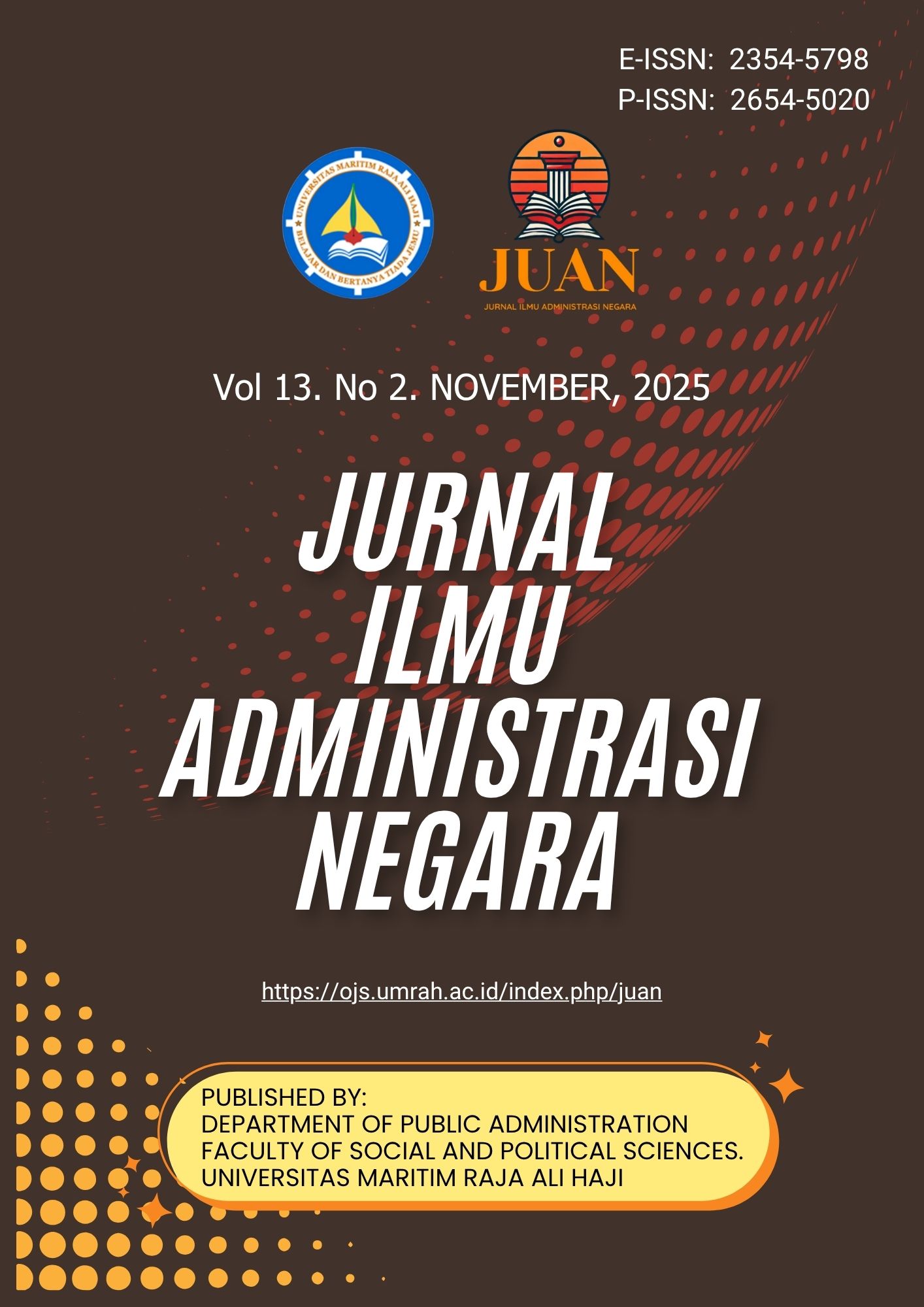ACCREDITATION

COVER
CONTENT
CITATION ANALYSIS
TOOLS JOURNAL
VISITORS![]()

IN COORPORATION WITH


KEYWORDS

The first article, Effectiveness of Forest Moratorium Policy Using the EMMIE Framework Approach by Wina Arsy Septiani, Ramaditya Rahardian, Latifah Latifah, Mohamad Hilal Nu'man, Yayan Andri, evaluates the effectiveness of Indonesia’s forest moratorium policy in curbing deforestation. Using the EMMIE framework Effect, Mechanism, Moderator, Implementation, and Economic value the study reveals that overlapping authority, weak coordination, and limited economic alternatives have constrained the policy’s impact. The second article, Adaptive Human Resource Management Model for the Needs of Working Students at Universitas Terbuka by Selomita Dewi Salsabila, Septia Septia, Yonatan Ari Santoso, explores adaptive HR management strategies tailored to the unique challenges faced by working students in distance education. The third article, Green Development through Modern Policy Redesign in the Disruptive Era within the Framework of Futuristic Transformation by Franky Djafar, analyzes how digital innovation and collaborative policy redesign foster green development in Indonesia. The study highlights the role of adaptive learning, technological integration, and community participation as core drivers for building resilient and sustainable governance systems in the disruptive era. The fourth article, Role of Village Government in Combating Illegal Gold Mining (PETI) at the Batang Teso Irrigation Dam, Marsawa Village, Riau by Lilis Tri Marsa, Hazqon Fuadi Nasution, investigates the proactive role of village governments in addressing illegal mining activities. The fifth article, Analysis of Women’s Representation in Various Positions and Roles within the Public Sector by Mutiara Indah Permatasari, Zulfa Harirah, assesses gender representation in public institutions. The research discusses barriers and enablers to women’s participation in decision-making roles and emphasizes the importance of gender-responsive policies in achieving inclusive governance and equitable leadership. The final article, Community Participation in the Belitung Aspiration and Complaint Channel (BESADU) Program in Realizing Smart Governance in West Belitung Regency by Sarifah Isnaini, Ahmad Murodi, Yudi Muhtadi, examines the integration of community-based complaint systems in smart governance implementation.
Enjoy Reading!
Jurnal Ilmu Administrasi negara (JUAN) This work is licensed under
a Creative Commons Attribution-ShareAlike 4.0 International License![]()
Published by:
Department Public Administration. Universitas Maritim Raja Ali Haji. Indonesia
Email: juan@umrah.ac.id | Website: fisip.umrah.ac.id
